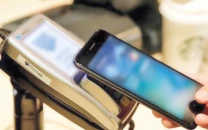Blind spots of modern education
Modern education creates multiple barriers to pursuit of real knowledge we desperately need to lead meaningful live

The writer is vice-chancellor of the Pakistan Institute of Development Economics. He holds a PhD in Economics from Stanford University and blogs at http://bit.do/az786
It was many years later that it gradually dawned upon me that we had been scammed. Our teachers had no answers to these questions, and so they shifted our attention to the questions that they could answer. We were counselled to look under the light, for the keys which had been lost in the dark. It was not always that way. In The Making of the Modern University: Intellectual Transformation and the Marginalisation of Morality, Harvard Professor Julie Reuben writes that in the early 20th century, the college catalogs explicitly stated that their mission was to shape character, and produce leaders. Students were to learn social and civic responsibilities, and to learn how to lead virtuous lives. However, under the influence of an intellectual transformation which gave supreme importance to scientific knowledge, and discounted all other sources and types of knowledge, consensus on the meaning of virtue and character fragmented and was gradually lost. Universities struggled very hard to retain this mission of character building, but eventually gave up and retreated to a purely technical curriculum. Because this abandonment of the bigger questions of life has been extremely consequential in shaping the world around us, it is worth digging deeper into its root causes
Enlightenment philosophers had hoped that reason would lead to a superior morality, replacing what they saw as the hypocrisy of Christian morality. They thought that Truth was comprehensive, embracing spiritual, moral, and cognitive. However, by 1930s this unity was decisively shattered. The triumphant but fatally flawed philosophy of logical positivism drove a wedge between factual cognitive knowledge and moral/spiritual knowledge. It became widely accepted that science was value-free, and distinct from morality. Prior to the emergence of this division, social scientists had defined their mission as understanding and promoting human welfare. Social and political activism had been a natural part of this mission. However, this changed in the early twentieth century with the widespread acceptance of Max Weber’s dictum that social science, like physical science, should be done from a value neutral perspective of a detached observer.
Positivist philosopher A J Ayer said that moral judgments had no “objective” content, and hence were completely meaningless. Similarly, Bertrand Russell said that despite our deep desires to the contrary, this was a cold and meaningless universe, which was created by an accident and would perish in an accident. These modern philosophies displaced traditional answers to the most important questions we face as human beings. According to modern views, we must all answer these questions for ourselves. No one else has the right to tell us what to do. All traditional knowledge is suspect, and instead of following custom or authority, we should arrive at the answers in the light of our limited personal experience and reason. Indeed, this is a core message of Enlightenment teachings which is built into the heart of a modern education.
The treasure of knowledge which is our collective human heritage has been collected by hundreds of thousands of scholars, labouring over centuries. Imagine what would happen if we were required to use our reason to establish and validate every piece of knowledge that we have. It would be impossible to learn more than a very tiny fragment of this knowledge. As a practical matter, we accept as givens vast amounts of material taught to us in the course of a modern education. This is necessary; if told to re-discover mathematics from scratch, even the most brilliant and gifted child would never get beyond the rudiments of the material in elementary school textbooks. But for the most important question we face in our lives, we are told that all traditional knowledge is useless; we must work out the answers for ourselves. There is a huge amount of discussion, conversation, and controversy contained in the writings of ancients. But we were educated to believe that the wisdom of the ancients was merely meaningless verbiage of the pre-scientific era. Thus, we never learned about Lao Tzu’s saying that loving gives you courage, while being loved gives you strength. We learned fancy techniques and tools, but never learned how to live.
Real education can only begin after removing positivist blinders, and realising that we have no choice but to trust the stock of pedigreed knowledge. It takes a lifetime of reasoning to arrive at a few simple results — we can look at the lives of those who made remarkable discoveries and see how, despite the magnificence of their contributions, their work was confined to a narrow and specialised domain. Furthermore, they were only able to see far by standing on the shoulders of giants of the past. In benefitting from the stock of accumulated knowledge, our main task is to discriminate, to extract the gold nuggets from the mountains of dirt, and to avoid being deceived by fool’s gold. Today, as always, and in all fields of knowledge, the best path to expertise is via discipleship, unquestioning acceptance of instruction from experts. A premature application of reasoning and critical thinking leads to rejection of thoughts which contradict our prejudices, and makes learning impossible. Discipleship requires putting away preconceptions, emptying our cups, and opening ourselves to complex systems of thoughts entirely alien to anything we have ever conceived before. It is only after absorbing an alien body of knowledge that we acquire the ability to understand, reason and critique. A modern education creates multiple barriers to the pursuit of real knowledge that we desperately need to lead meaningful lives, by renaming ancient knowledge as ignorance, and by presenting us with illusions masquerading as knowledge. Like the wife of Aladdin, we have gladly given away the ancient lamp for the bright and shiny modern one, without being aware of our loss. The path to recovery is long and difficult, as unlearning requires being open to possibilities and exploring directions that seem patently wrong to our modern sensibilities. It is not easy to suspend judgment and let go of what we have already learned, in order to acquire new ways of looking at the world. Yet, this is exactly what is required, if we are to learn to live, and not waste this unique and precious gift of life that has been granted to us for a brief moment only.
Published in The Express Tribune, December 26th, 2016.
Like Opinion & Editorial on Facebook, follow @ETOpEd on Twitter to receive all updates on all our daily pieces.













COMMENTS
Comments are moderated and generally will be posted if they are on-topic and not abusive.
For more information, please see our Comments FAQ